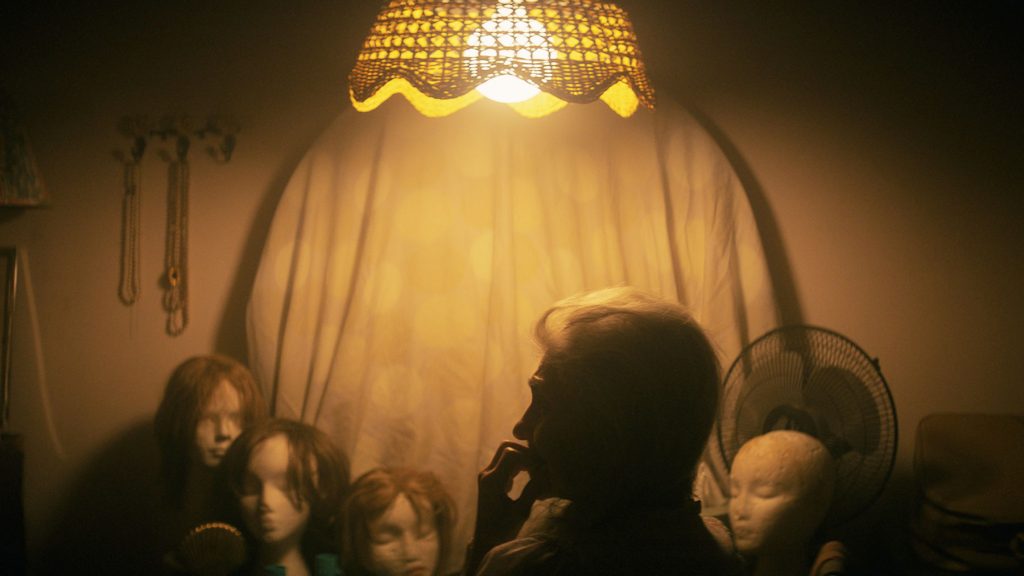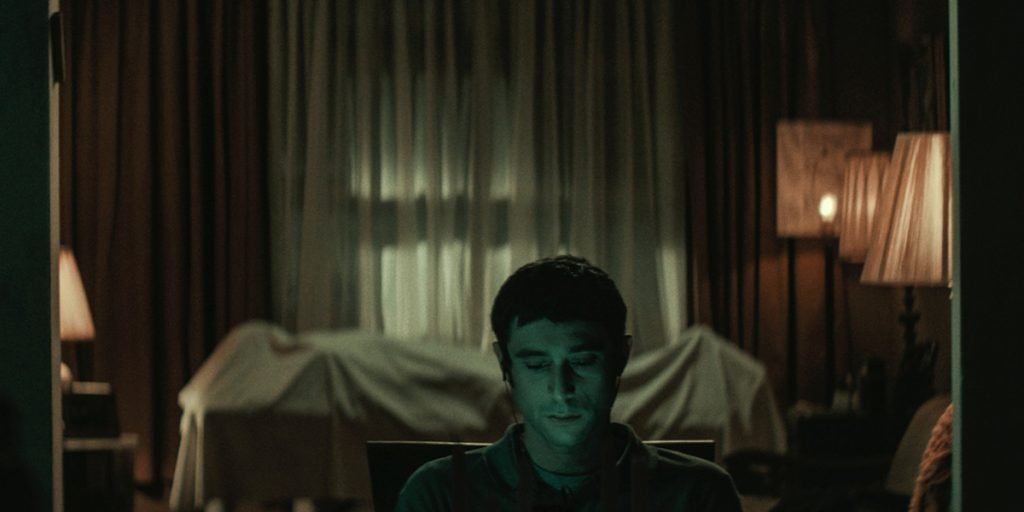The Vigil expertly uses themes of religion and trauma to create a thoughtful character study, though it stumbles in its attempts to scare the audience.
Looking back, the 2010s have cemented themselves as one of the best decades for horror cinema. Big budget hits such as It and Us have dominated the box-office while the films of Ari Aster, Robert Eggers, and Jordan Peele have used the genre to explore timely social themes. However, this decade has also seen a rise in low-budget horror features that seek to provide the same experience as mainstream films on a much smaller budget. Keith Thomas’s directorial debut The Vigil is the newest addition to this emerging micro-genre. A quick and harrowing chamber piece that dissects religion and mental illness, the film stumbles in its attempts to scare the audience.
With a brisk 90-minute runtime, The Vigil wastes no time setting up its premise. Yakov (Dave Davis), is a Jewish apostate doing the best to continue his life after an unspecified tragedy. One night, after a group therapy meeting, he is approached by a local rabbi (Menashe Lustig) who offers him money to keep vigil over someone who just died, so that their soul may have an easy passage into the afterlife. Strapped for cash, he reluctantly accepts and leads him to a cramped apartment where the film will spend the remainder of its runtime, as Yakov struggles against a supernatural force. It’s an effective setup that gets us rooting for Yakov from the start, and allows the rest of the film to dedicate itself to thrills and character development. Unfortunately, it does one much better than the other.

The fatal flaw that hinders the Vigil from becoming a cult classic is that it simply can’t figure out how to effectively scare the audience. The first scenes of Yakov keeping vigil are a series of expertly constructed moments of dread. Cinematographer Zach Kuperstein uses negative space to incite tension from something as simple as a dining room table or a grandfather clock. This, paired with specific sound choices, makes these early scenes extremely tense with a real threat of danger. Unfortunately, once the antagonist becomes known to Yakov, in the third act, all of the careful preparation from those scenes is thrown out in favor of grating sound design and visual jump scares that feel cheap compared to the carefully constructed fear experienced just a few scenes before. It might be enough to chill someone who doesn’t partake in the horror genre very often, but those with more experience will be sorely disappointed.
While The Vigil may fail as a horror film, its success as a character study is a welcome surprise. Horror has a long history of tying the protagonist’s trauma or mental illness to an external force, such as in Hereditary or The Sixth Sense. In The Vigil, Yakov is clearly struggling with some traumatic event from his past that was directly tied to his faith. As the narrative progresses, it becomes evident that to fight the entity terrorizing him, he must face his past and by extension, the faith he left behind. It’s an interesting exploration of closure and religious trauma that is handled with authenticity and care and is the film’s strongest aspect.
If nothing else, The Vigil proves that everyone involved is capable of creating great movies in the future. With the aforementioned cinematography and Thomas’s clear sense of pacing and character, it’s puzzling as to why The Vigil didn’t turn out as good as it could have been. Perhaps a more coherent finale or a slightly longer runtime to flesh out some of the ideas would have proved beneficial. Though it has its fair share of problems, The Vigil’s stellar first half and committed performances from the cast keep it from being a dud. Overall, the film is a good choice for movie night if you need something quick and engaging.
The Vigil opens in Select US Theaters, on Digital Platforms and VOD on February 26th.

